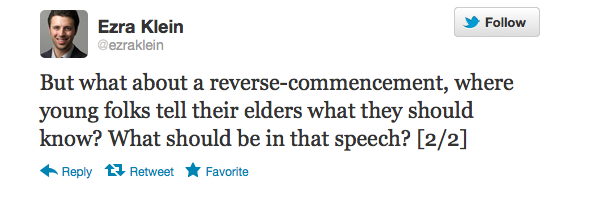We here at CFIF have always cast a jaundiced eye on First Lady Michelle Obama’s nanny state attempts to hector Americans about how they eat. Whether it’s Ashton pointing out that the program consistently fails in public schools because kids don’t actually like the food or my observing that this trend has actually led to black markets in the cafeteria, we’ve primarily focused on the initiative’s shortcomings for America’s children. It turns, out however, that it’s just as robustly failing adults. From Bloomberg:
After vowing to open more than 1,000 stores selling fresh fruit and vegetables in underserved urban neighborhoods, or “food deserts,” grocers have opened a fraction of them, putting in jeopardy Michelle Obama’s effort to improve food choices for low-income Americans.
Wal-Mart Stores Inc., which said last July it would have 300 food-desert stores nationwide by 2016, has opened 23 and delayed opening some locations after a backlash from activists. Supervalu Inc., which pledged to double to 2,376 its Save-A-Lot stores, has slowed the pace of openings amid declining sales and scarce financing for its licensees. Meanwhile, grocers are opening stores in wealthier urban enclaves.
Food desert locations, by definition, aren’t profitable, according to Nelson Lichtenstein, director of the Center for the Study of Work, Labor and Democracy at the University of California at Santa Barbara.
“The whole phrase ‘food desert’ sort of implies the weather created it,” said Lichtenstein. “It’s not the weather — it’s because people don’t have any money.”
Shoppers who live in low-income city neighborhoods “don’t fill up a basket and spend $100, they buy $10,” said Lichtenstein, who wrote “The Retail Revolution: How Wal-Mart Created a Brave New World of Business.”
There’s a couple of worthwhile takeaways here. The first is how often politicians and corporations earn praise from press releases and hollow promises. Wal-Mart undoubtedly got more fanfare for announcing the “food desert” stores than it will get scrutiny for failing to build them.
The second is the pervasiveness of the liberal creed that undesirable outcomes must be the product of systemic oppression. Mrs. Obama has long suggested, at least implicitly, that a neglect of urban communities is to blame for the absence of fresh produce in the inner city. It seemingly never occurred to her that the absence of a service in a given market might owe to the fact that there’s not enough demand to make it profitable. The First Lady’s real problem isn’t that corporations aren’t producing what people want; it’s that consumers don’t want what she thinks they should.
That gets to the core of the Obama Administration’s problem. They don’t simply want to change public policy or see corporate practices altered. They want to see human behavior reengineered — whether in the form of the food we eat, the cars we drive, or the doctors we visit. Sooner or later, however, reality will catch up with the White House, as it has in the case of the “food deserts.” No government edict can make straight the crooked timber of humanity.

 Um, Ezra … nothing. There’s a thread in modern liberalism — going all the way back to Jean-Jacques Rousseau — which esteems the callow and untutored as morally superior to the experienced and wise. Unfortunately, since the 1960s, that belief has increasingly come to be shared by society at large.
Um, Ezra … nothing. There’s a thread in modern liberalism — going all the way back to Jean-Jacques Rousseau — which esteems the callow and untutored as morally superior to the experienced and wise. Unfortunately, since the 1960s, that belief has increasingly come to be shared by society at large. CFIF Freedom Line Blog RSS Feed
CFIF Freedom Line Blog RSS Feed CFIF on Twitter
CFIF on Twitter CFIF on YouTube
CFIF on YouTube